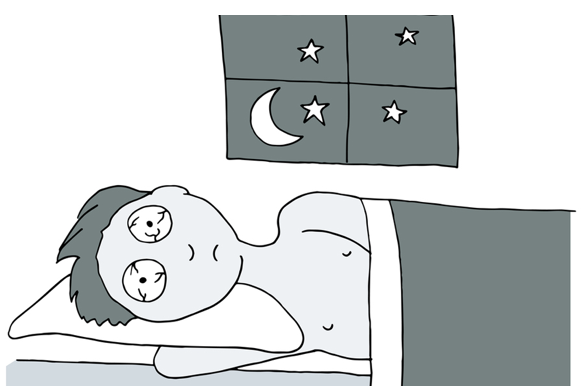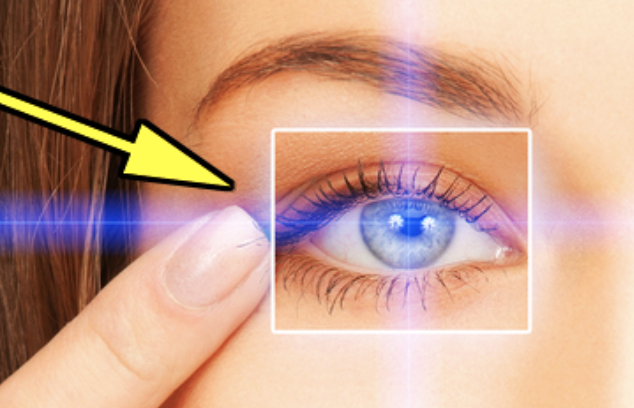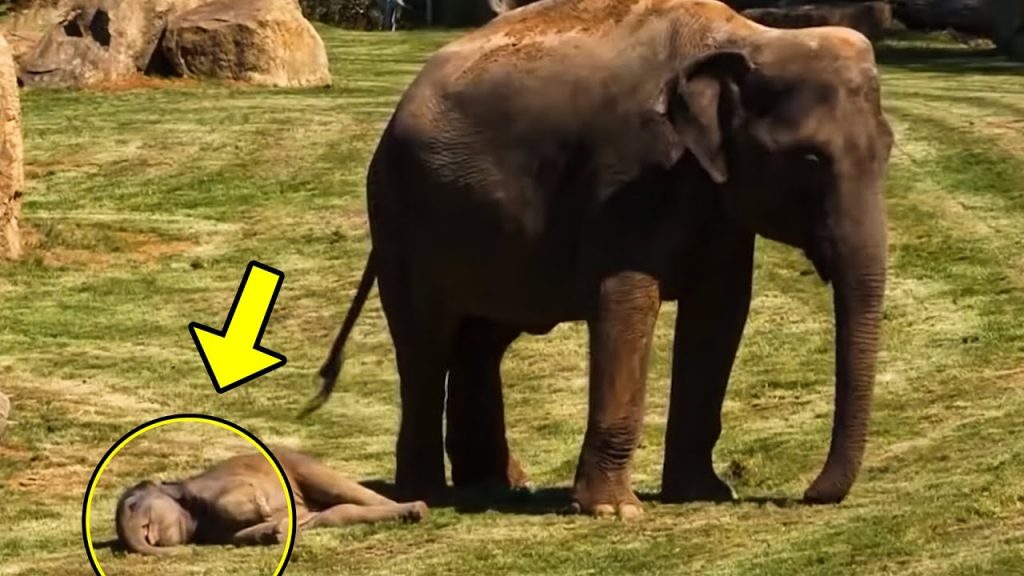The Strange and Surprising Reason Why People Unexpectedly Twitch As They Try To Fall Asleep!

image via – shutterstock.com
Do you know what I love? Getting answers to questions that you have always wondered about, but never thought to ask!
The video below, that you are about to watch, explains the fascinating theories related to the strange phenomenon that we have all experienced throughout our lives; that sudden jerking movement or FEELING OF FALLING, as you are going from consciousness into sleep.
So, What is that all about? This scary, loss of control feeling, of trying to avoid falling, is referred to as a ‘hypnic jerk’ or ‘sleep start’. Although many doctors believe this is just an “almost asleep” transition from wakefulness into unconsciousness, there are really interesting reasons to explain this transition.
The video explains the theories that have to do with the brain defending against the paralytic state of our organs,that keep us from running around when we sleep, in the transitional period.
As it is noted that this phenomenon occurs early on, when we are babies, the ‘hypnic jerk’ may be a developmental feature that we go through to learn how to control our limbs.
Our brains may continue to register this as a failing of our organs, as we get older, and continues to compensate by jerking us awake. There is even a theory that incorporates our primate ancestors, the apes, as the origins of this bizarre phenomenon.
These and other explanations are explained in detail in the following footage, which I found to be really fascinating.
Watch the video below for further information. Let us know what you think.
Please SHARE this fascinating video with your friends and family 🙂
Does Your Eyes Ever Twitch? Doctors Say THIS Is What It Means!

image via – shutterstock.com
A twitchy eye can be extremely annoying and uncomfortable. You’ve likely experienced it many times before and it always seems to come out of nowhere. One minute everything is fine and normal and seconds later it feels like your eye is about to jump out of the socket.
The nerve or muscle or whatever the heck it may be is spasming and shaking all around, making you squint and worry about what is actually going on in there. If you have ever wondered what is causing your eye to twitch and whether or not you should be worried about it, here is the answer.
There are several different types of eye twitching and each one is considered a separate condition from the rest. They are all caused by different things and the most common type, that you have likely experienced, is called eyelid twitching or myokymia.
The Mayo Clinic describes it as “affect[ing] only the eyelid. It can involve either the upper or lower lid, but only one eye at a time. The eye twitching can range from barely noticeable to bothersome. The twitching usually goes away within a short time but may recur over a few hours, days or longer.”
The twitching is caused by tiny muscles and nerves located around your eye. Just like any other muscle that suddenly spasms out of control, the ones in your eye can as well. There is nothing serious about this type of twitch and it’s relatively normal.
A less common type of twitch you should be worried about is called a blepharospasm, which is when a twitching in both of your eyelids gradually increases and worsens. It gets to a point where the intensity and strain of the twitching becomes too much and may even lead to near or complete blindness. However, this is a very rare occurrence and if it ever happens to you, see a doctor immediately.
While doctors and scientists have yet to agree on what exactly causes our eyelids to twitch, they have narrowed down some of the main factors that contribute to it. In the accompanying video Dr. Matthew Palmer, O.D., from the Southwestern Eye Center explains the basics about eye twitching and reassures us all that it isn’t a major health issue or concern.
In fact, it’s the opposite and normal, many people experience it throughout their lifetime. Here are a few basic things you can to to cut down on the frequency and severity of when it happens to you:
1) Relax and De-stress- The less stressed you feel, the less likely you are to end up experiencing an eye twitch. Stress is believed to be one of the main causes of myokymia and it’s also an aggravating factor which will make your twitch stronger and thus worse.
2) Get a Full Night’s Sleep- A lack of good, quality sleep can wreak havoc on your body, especially your eyes. Having to focus and re-focus a countless amount of times each day is hard on your eye muscles and they get fatigued just like any other muscle in your body. Not getting enough sleep also adds further stress to our lives and bodies, so rest your eyes and try to get as much sleep as possible.
3) Caffeine- If you really have eye twitch problems, cut the caffeine out of your diet because it can trigger them. Caffeine also causes our bodies to release serotonin and noradrenaline, two chemicals that stimulate and excite our nerves, which an lead to more frequent and severe eye spasms.
These three factors all contribute to eyelid twitching, but there may be other potential causes. If you have an eye twitch issue that is extremely annoying, frequent, and bothersome, there are medications that can help with it. Botox has also been shown to be effective at managing and controlling the muscles around the eye and can help with twitching.
However, most of the time the spasms will go away on their own and are not so severe that they greatly impact our quality of life. Finally, there are no neurological problems associated with a twitchy eyelid, so don’t worry about experiencing them or freak out when they happen.
It’s a normal occurrence and should pass in a few seconds or minutes.
Please Share This With Your Family and Friends




